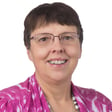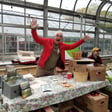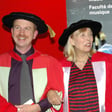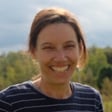Become a Creator today!Start creating today - Share your story with the world!
Start for free
00:00:00
00:00:01

Farming for the Future with Ramzy Kassouf
This week, I interview Ramzy Kassouf, one of the partners in Les Jardins Carya, a farm in Senneville, on the island of Montreal. Les Jardins Carya specializes in lettuce, kale, spinach, sprouts and other greens. Ramzy and I spoke about the importance and challenges of sustainable farming, the need to support one another during hard times and Canada's diversity.
Transcript
Introduction and Advertisement
00:00:00
Speaker
Mary redeemed a $50,000 cash prize playing Chumba Casino online. I was only playing for fun, so winning was a dream come true. Chumba Casino is America's favorite free online social casino. You, too, could have the chance to win life-changing cash prizes. Absolutely anybody could be like Mary. Be like Mary. Log on to ChumbaCasino.com and play for free now. No purchase necessary. Void were prohibited by law. 18-plus terms and conditions apply. See website for details. The voice of the preceding commercial was not the actual voice of the winner.
Meet Ramsay Cassouf and Farm Beginnings
00:00:32
Speaker
My name is Tracey Ariel and I am an apologetically Canadian. Today we are speaking with Ramsay Cassouf. He is the founder and operator of Le Jardin-Capier Farm, an urban farm in Montreal. How are you doing, Ramsay?
00:00:56
Speaker
I'm doing fine. We're wrapping up the season for the incredible 2020 farming season. And just like starting this with you, and I'm watching the first flakes of snow coming on the farm now. And we're entering a new phase. But I am doing exceptionally fine. Thank you.
00:01:18
Speaker
Yeah, the snow is a little unusual here in November. As we're recording this, it's mid-November. This probably won't play until December when there will be plenty of snow around. But we just had temperatures of last week was 12, 15 degrees, and now we're down to snow. So it's been a very weird autumn.
00:01:40
Speaker
So can you talk a little bit about how 2020 has been? Well, first of all, actually, let's talk about your farm. And because you've been around for a while now, it's totally an organic farm. Can you just describe a little bit about how you started it? Yeah, this is our 10th anniversary. Actually, we started in 2010.
00:02:00
Speaker
I have this property in the West Island of Montreal and almost like since 1996 and I activated the agricultural project in 2008 and after that I decided to intern at a farm where my present business partner Alex Flores who
00:02:25
Speaker
who was working at that farm and I did an immersion in learning about agriculture and in 2010 Alex and me and another lady by the name of Lee Mundi founded Le Jardin Carrier and the rest is history.
00:02:42
Speaker
Can you talk a little bit about some of the
Farm Operations and Community Impact
00:02:44
Speaker
operations? I mean, I know that you have some amazing greens that you're sort of known for the quality of your greens. Yeah, it's, you know, we put in our vision, like it's only one sentence is we decided to grow
00:03:00
Speaker
high quality food for our local community at an affordable price. So that was the intention and the vision started in 2010 and we really, we have grown to be specialized in salads and we talked a little bit about arugula, the spinach and a lot of varieties of microgreen as well
00:03:30
Speaker
and we grow another 20 to 30 crops additional for our farmers market in San Andebagyu that for the last 10 years we never missed a Saturday and we have a big clientele in the West Island and we've been serving them
00:03:45
Speaker
and the relationship became very much our clients and our community, they want to see us in San An. And it was vice versa, so we really have grown into a community that brings food on our local community on a week in, week out.
00:04:11
Speaker
Yeah, and I know you because you've been delivering greens and mushrooms to the Verdun farmers market. The mushroom is a partnership with Medisar that just started this year. So do you partner with other growers?
Adapting to the Pandemic
00:04:28
Speaker
Yeah, so what happened is like the pandemic, when it happened, March 13, when the world stopped, we lost all our restaurant clients. Our farmers market shut down as well.
00:04:43
Speaker
So we shifted and pivoted towards making basket for home delivery like from March 15 to June 17. And Medisave, like we met, I've known Andrew for a while from the year before and I know how beautiful his products are. So we launched what we call like the solidarity baskets where we're developing
00:05:07
Speaker
a network of farmers around Montreal that like we can join forces and since Caria has been delivering like almost three times a week to wholesale clients in the core of Montreal. So the addition of Medisar and their amazing product, like I mean the mushroom that you tried Tracy, it's been a very welcome addition to our basket.
00:05:36
Speaker
Yeah, they were, I mean, their chanterelles were particularly popular this summer and but they have some fabulous shiitake and prarats as well and some other varieties. I think they have six varieties altogether and combined with some of your greens. I mean, talk about a great salad. That's right. That's right.
Innovative Farming Techniques
00:05:54
Speaker
Now, I was also lucky enough to visit your operations this summer, and I got to see some of the unique ways that you produce, because one of the things that's interesting about your salads, even when you order them in bulk, as we do, they've already been rinsed and dried. And I noticed that you have a cool-bought operated fridge, which is basically a building
00:06:17
Speaker
with an air conditioner that runs with a special little device called the CoolBot to make a fridge. And you have dryers, like washing machine type dryers in order to spin the, to spin the solids. Can you tell me a little bit about the innovation that can be some of the, I'm sure that you didn't come up with all that stuff the first year. Yeah, no, no, you spin it by hand.
00:06:44
Speaker
When we started, we had this small spinner that we put like one kilo at a time and we spin it and dry it and try to package it after. But yeah, we've grown really nicely and really it's an effort that I can mention between brackets here that the new way of farming is I don't want to farm alone.
00:07:11
Speaker
It's very complex, it's very hard and it's like lots of energy need to be put in. So we have an amazing team at Carrier that like this year we had about almost 19 employees and they were amazing.
00:07:30
Speaker
a team that you can make anything innovate and bring new ideas and keep metamorphosing into different farms. So Kaya has been reinvented almost every year. So we never, I mean, we look back 10 years ago and what we are now here, like definitely the only thing that remains
00:07:55
Speaker
constant is the vision was where we were determined and persevere to grow food local I mean look like high quality food for our local community at an affordable price. So we were we are part of a cooperative. It's called the Capei, you know, and it's a cooperative, a Greek oil deco ecological deproximite. And this is like a recruitment of almost
00:08:23
Speaker
300 to 500 farms, you know, like the Bioloco is part of them as well. And we are one of the founding member of this co-op and they do a lot of innovative things and we shared knowledge about how to improve the efficiency of the operation of the farm. So we managed to like to try a lot of things and one of them is this like transforming a dryer, you know, you dry your clothes in it like the spinner.
00:08:52
Speaker
And to remove the basin, we put a new vegetable spinner and it spins like 5 kilos at a time. And before we do the spinning, we have a big bubbler.
00:09:09
Speaker
As soon as you harvest them in the field, they've been in a growing phase and they definitely need to have a cold water shock. So we shocked them right away.
00:09:23
Speaker
an amazing rest of the growth and it's like almost keep them very very fresh when you spin them to dry and you keep them in a cold room for 24 hours and they can have a life shell for 7 to 9 so we've been very successful in creating as well like our own mess plant grown in-house at the farm which is six heads of lettuce
00:09:48
Speaker
that we harvest one by one and we wash it, spin it, dry it and deliver it almost like three times a week and we do arugula and spinach and spicy mix which roughly
00:10:07
Speaker
We're very happy that now we are doing between 500 to 800 kilo a week and greens and we supply a lot of wholesale and a lot of our farmers market and other food bank that we deal with. And one of them is the Girdanar Farms Market. And what about the, can you talk a little bit about the greens? How has that come along? I mean, aren't you in the new greenhouse set now?
00:10:35
Speaker
Yeah, so like you're talking about the existing greenhouses on the farm or the other project that we're working on? Well, you have a new project, got you to extend that. So start with talking about the existing way that you're doing greens and then the vision for the future. Yeah, so what we do is like in Canada, like which is a climate, which is cold, we know that like the summer is short.
00:10:57
Speaker
So we have conscious of extending the season and there's a lot of research that's been done through the co-op and other farmers and especially like we were very close to Nofa.
00:11:12
Speaker
which is the Vermont, like, you know, in a New England farmer's market association there. Yeah, exactly. In Vermont, we almost want every year for those conferences of learning how to extend the season. So in Canada, it's applicable to us.
00:11:30
Speaker
to grow cold loving crops from the end of February till May when the weather warms up and we can go outside. So we have about seven greenhouses now and we use them like the three months beginning of the year like from February to May and we use it what we call at the shorter month of the year like from September
00:11:56
Speaker
So these are giving us a lot of capacity and extend our season and we bring a lot of salad that we're still harvesting now. Tonight is going to be minus 7.
00:12:07
Speaker
We cover them at night with a heat mat. It's almost like a batch of terminal covers so they can resist the cold at night. And that's been a great success for us. We're very happy with it and we're still supplying grocery stores. I mean, even with salad, I just did a delivery.
00:12:32
Speaker
The new project is, the microgreen is becoming like a big growth venture for us and the size of growing it here at the farm is, we're not equipped for it.
00:12:50
Speaker
So we rented a local in Kirkland for almost 2,100 square feet industrial building. It's on Heimus. And we were launching that project next Monday.
00:13:06
Speaker
And that will be a place specifically designed to grow microgreen sprouts and fine herbs at the microgreen level. It's still grown in soil because we're certified organic and it's not hydroponic. And it's vertical and it's going to have a lot of capacity to run it all year long.
00:13:31
Speaker
So we're very excited by using that facility all year long to launch now a winter basket that is going to happen the first delivery on December 2nd in Verdun, December 3rd in the West Island.
00:13:48
Speaker
Yeah, I'm really excited about that. I think it's a great project. But I mean, it's got to be tough because, you know, that means more rent for a year. It means more capacity for longer. So as a small business person, you know, this is not easy to sustain.
Challenges and Opportunities in Farming
00:14:06
Speaker
Can you talk a little bit about
00:14:09
Speaker
some of the challenges that you've succeeded in, you know, because as they say, entrepreneurship is never straightforward. There's always ups and downs. Can you talk a little bit about some of the challenges that you've managed to bypass in your 10 years?
00:14:25
Speaker
Well, it's definitely like agriculture at the small scale at small farms, you know, like we want it like always like when we learn and I entered the agriculture venture with Alex and other farmers. It's like we grow everything. So like to grow everything is like highly diversified and it's really kind of like
00:14:47
Speaker
Like as an entrepreneur and running businesses for profit, you know, like to pay salary and nice wages and have a good living for the farmer. It was a big challenge and we could never meet it.
00:15:05
Speaker
the models of how to Get a business model in farming where we can actually Have a decent salary wages to our staff and to ourself and and be successful so so that was like the first five years was like a lot of fine-tuning and the lesson learned from this is like the
00:15:32
Speaker
You need to specialize as a farm into a few products and grow them well and we can scale them as well. So this is something that we realized and for the diversity is by doing the development of a network of other farmers that they join to us
00:15:56
Speaker
So we can have farms that they are specialized in greens and microgreens and tomatoes. And we can have other farms as well like they are in the same network that we are. They grow mushrooms. We have another farm that they grow root crops. So the diversification happens by more farmers getting together and get their act together and they can complement their offer to their client.
00:16:23
Speaker
And really the objective is always to pay the farmers first. So this kind of model is really now...
00:16:33
Speaker
It's paying off for us after testing it at many levels and fine tune it and I recommend so much like you really need to specialize at the same time keep the high diversity by connecting with other farmers where you need to get the marketing lesson here is huge like ship on time to clients and try to have a consistent product week in week out.
00:17:01
Speaker
And that carrier has invested heavily into making like three deliveries a week for our whole institutional client. So really it's still like work in progress and we would like to get it even fine-tuned more.
00:17:19
Speaker
And now the scaling, we know that we can grow it and now we see we can scale it and we have all this network of farmers. So we have a model. You can go on our website and see that vision that Envrak like wholesale to our institutional client in the Montreal region, you know, like it's it's like really farmers organizing themselves in a way that we don't have to like, I mean, there's like our client don't use a middleman because the middleman
00:17:49
Speaker
always was the problem even on the retail side when we do the farmer markets we go directly to the consumer but now we want to go directly to the institution, buy farmers from farmers and all the marketing happens by the farmers themselves and that being the success and the price will go down because we are eliminating so many intermediaries and that really ate a lot and chipped away on our profitability.
00:18:16
Speaker
So now we can even enjoy a little bit better margin than we used to do before.
00:18:20
Speaker
Right. Well, and the problem in Canada, I mean, so much of the farred food system is institutionalized in a very grand scale, which means that people are used to paying less for food than is actually sustainable for farmers. So I think your experiments have been really helpful in trying to turn that around because people need to pay decent, you need to pay enough for your food so that people can grow it fairly.
00:18:46
Speaker
Exactly. That's a big, that is a big challenge. I mean, it takes 10 years. I mean, people don't realize that in the farming community, 10 years is a startup. You know, most companies, they say five years, but with agriculture, it's really a 10-year startup zone. You know, you're really just getting into your own right now. We're just learning right now. We're getting a little bit better understanding. And you're right, is that the COVID-19, you know, like, is really
00:19:12
Speaker
I mean, that's the silver lining, if you want, that made the purchasing of locally and connecting with your local farms or any of what we call the local economy.
00:19:27
Speaker
That really wasn't evident and wasn't that clear to many of our community and other members who are not joining the community of buying locally. But now we can see it's happening. I never saw it like this. It's really people want to eat local and the threat globally of inventory could be disrupted.
00:19:53
Speaker
By a pandemic, like what we had and we're still having is like inventory in Montreal can be depleted in 40 days, like we cannot replenish it. So the government are realizing that, municipality are realizing that and the consumer are realizing that, which is some kind of like, we call it a silver lining, so it's positive for our car.
00:20:17
Speaker
Yeah well that I mean that brings up the another big challenge this year has been quite a challenge just to keep operating and making sure that people got food safely. Exactly. So it's been and can you talk about oh and actually I didn't, Eric would never forgive me if I didn't talk about your kitchen projects too. You're actually starting to transform food too which is a brand new project. Yeah three years ago like I mean like Eric used to come
00:20:45
Speaker
Eric Hansen is one of our partner now, and Lejalankaya became an incorporation this year and will really open it to more shareholders and we want to increase the ownership by employees and going forward. And Eric was one of the example to bring a lot on the table in terms of eliminating waste and like use everything that we produce on the farm.
00:21:13
Speaker
to transform into a freshly baked product in the transformation department here and Eric Hansen is our chef and he's been instrumental. So it was a great success by introducing the veggie pate this year.
00:21:34
Speaker
and we did the soups and salsa and we are working on other product as well, another project. So that was a great success. It's something new. We wanted to work on what we call it like a clean fast food if you want, like that respect the economy, the environment, respect like no waste and affordable prices to buy
00:22:03
Speaker
like a quick meal, prepared, high quality, locally produced and at an affordable price. And Eric Hansen is one of these preoccupations now
00:22:17
Speaker
But we postponed the launching a little bit because of the COVID-19, because you have a lot of experience in a restaurant. And how do we redefine the dining experience to be affordable to all the population, to all our communities?
00:22:37
Speaker
Yeah, I'm sure once things open up, I mean, Montreal is still in a red zone, so things have been very challenging this year. But once things open up, I'm sure that that will be another growth project for you. We, you know, we sold quite a bit of the pesto and I know that people will be interested in seeing what other products are available. Yes. And that leads me on to my next question, because you've got you've talked about collaboration, you've talked about challenges, you've talked about
00:23:06
Speaker
successes and growth.
Cultural Reflections and Future Goals
00:23:08
Speaker
Can you and you know, this is a podcast about Canadian identity. So can you talk a little bit about your identity as a Canadian and, and how you feel about that and what it means to you? Yeah, it's, you know, like it's, it's, you know, you mentioned at the beginning, before I touch on the identity about the collaboration and, and this, this, this word of
00:23:35
Speaker
cooperating together. It's added to innovation. So these two words, which is the watchword for us post COVID-19, are any small farm or business or any community, like even families and connection, if they don't work on cooperation and innovation,
00:24:00
Speaker
And they can comprehend that it's not business as usual. They will be very difficult to survive.
00:24:09
Speaker
So we really need this kind of cooperation and we really need to think out like not only outside the box like almost thinking in a new box how to bring food directly to our community and that for me is we're talking about identity now you know like it's like everything
00:24:34
Speaker
happens, you know, like want to develop culture and develop identity and develop connection and sense of belonging, you know, like it's happens always around food. So we're lucky that we're engaged in that and in our community in producing food.
00:24:52
Speaker
And personally, I came from Lebanon in 1976. And I connected here with Quebec at an early young age.
00:25:06
Speaker
I feel like I really belong and I'm very lucky to be Canadian, Quebecers, from other origin that came to Canada. So I feel like this unity that exists in Canada and respecting diversity of each one of us, it defines us as a country.
00:25:34
Speaker
We really get three kids, they're all born here and every time they come to the farm, I feel like your connection and understanding or identity is to connect to the soil. And the soil has been historically the place where community developed, cultural developed
00:25:58
Speaker
And we're lucky that we have so much land. And my dream to enhance this understanding of identity is to convert our soil that exists, specially here in Quebec, like 90% of our soil will grow only on a tree crops.
00:26:16
Speaker
There will be a major like in Canada, in Quebec, in the government put some kind of like a long-term plan to convert those land to grow more diverse food for our community. And the tree crop that we only grow in Quebec here is 90% of our soil is the hay, soya and
00:26:44
Speaker
And what is the other one? Hey, Soya and Mais, you know? So the more we connect to the soil and the more we diversify the soil, and I don't want to talk about sustainability anymore, I'm going to talk about reciprocity. So the reciprocity is like what we can give to the soil and to the earth.
00:27:10
Speaker
And it gives us back but at the same time we always need to reciprocate back to her because we are losing our soil and then we are losing our growing media and that will threaten our identity. So finally I am happy you asked that question in your podcast.
00:27:29
Speaker
talking about the Canadian identity. Our Canadian identity is threatened if we don't protect our earth and we don't protect our environment and we don't protect our high quality of food. And that's my opinion. Ellen, it's a great answer because food is the basic of survival for people.
00:27:51
Speaker
So if you don't have soil, then you're not going to have survival. So it's a very good point. Was there anything that I didn't ask you about that you had been hoping to talk about? Well, I just want to talk about the people who grows the food. Because I'm talking about the young people and the youth. And it's a phenomenon that I witnessed day in, day out for the last 12 years.
00:28:18
Speaker
in my experience in agriculture is there is this big movement of young people they want to make a difference in the world and I can see them come into the farm every year and they're so talented and it's so from a diverse
00:28:37
Speaker
a background, you know, like some of them are university graduates, they're in journalism, they're like physicists, you know, like, and they, you know, like just their quality of work and the way they are dedicated to grow this food. For me, it's fascinating to watch. So sometimes, you know, we don't, you know, thank them enough, you know, like, and I would really like the
00:29:06
Speaker
Like the food is not like we can see food everywhere in the stores and shipped from abroad and stuff like this. But the story of how to grow the food is the most in my opinion, like under like it's not told enough at the untold story. And we really need to talk about those young people who are working almost 10 hours a day or eight hours a day.
00:29:33
Speaker
like 40 degrees sometimes, there's a chemical and heat, we cannot say, unsupportable. And so I just like to always acknowledge the amazing work. And for me, they are my heroes, you know, like, and I'm always fascinating to see them. And they're the one who's actually built the Jadankariya. And they are the one who,
00:30:01
Speaker
finished from here to three years and they went and founded their own farms and they're all over Canada and some of them now they are in BC you know they in Vancouver and they're the manager of some of the amazing farms in BC, some of them in the States and so on but we're very pleased to applaud those young people and to always welcome them into our farming community.
00:30:25
Speaker
Oh, isn't that wonderful?
Conclusion and Closing Advertisement
00:30:27
Speaker
That's a great, great note to end on. Thank you very much for your time, Ramsey. It's fabulous to discuss the future of food with you. My pleasure. Thank you, Tracy. Thank you for listening to Unapologetically Canadian. Please consider supporting our podcast for $2.99 a month. Join select listeners and get additional episodes every month.
00:31:00
Speaker
Mary redeemed a $50,000 cash prize playing Chumba Casino online. I was only playing for fun, so winning was a dream come true. Chumba Casino is America's favorite free online social casino. You, too, could have the chance to win life-changing cash prizes. Absolutely anybody could be like Mary. Be like Mary. Log on to ChumbaCasino.com and play for free now. No purchase necessary. Void were prohibited by law. 18-plus terms and conditions apply. See website for details. The voice of the preceding commercial was not the actual voice of the winner.



















